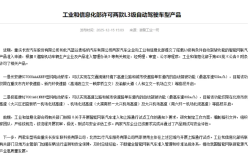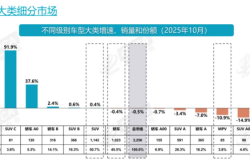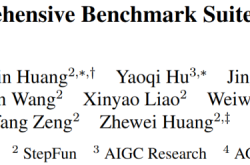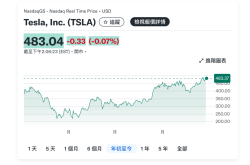Recently, SF Express once again submitted a prospectus to the Hong Kong Stock Exchange. Prior to this, SF Express first submitted in August 2023, but due to failure to pass the listing hearing or go public within the specified time, the listing application automatically expired.
As early as February 2017, SF Holdings achieved an A-share listing by backdoor listing into Dingtai New Materials. If this time it can successfully list on the Hong Kong Stock Exchange, SF Holdings will become the first domestic express delivery company to achieve an "A+H" dual listing.
Founder Wang Wei once dismissed the idea of entering the capital market, but under fierce industry competition, going public means adding a channel to obtain financial support, which can provide more ammunition for the intense price competition in the express delivery industry.
Times have changed, and in addition to SF Holdings, Wang Wei now owns three Hong Kong-listed companies, namely SF Express (City), SF Real Estate Investment Trust, and Kerry Logistics.
Behind SF Holdings' pursuit of multiple listings is the inevitable path for express delivery giants to accelerate their internationalization as they enter the domestic stock market competition. Even if their revenue scale far exceeds domestic peers, there is still a long way to go in the international market, as evidenced by the latest performance of global express delivery giant UPS.
Continuous domestic market competition
Data from the State Post Bureau shows that in the first half of 2024, China's express delivery volume increased by 23.1% year-on-year to 80.16 billion items. Behind this seemingly booming growth lies the embarrassing reality of "increased volume but decreased prices" for major express delivery companies. In the first half of 2024, China's express delivery revenue per item was 8.15 yuan/item, a year-on-year decline of 12.46%.
According to the logistics business operating briefings released by various express delivery companies for June 2024, Yunda, YTO, and STO reported revenue per item of 2 yuan, 2.25 yuan, and 2.01 yuan, respectively, with year-on-year declines of 13.79%, 4.85%, and 9.05%, respectively.
Even SF Express, which focuses on mid-to-high-end time-sensitive items, was not spared. In June, SF Holdings' revenue per item was 15.77 yuan, a year-on-year decrease of 3.96%, compared to 17.00 yuan in January.
At the same time, SF Holdings' gross margin is also declining, from 15.90% in 2020 to 12.60% in 2023. When it first listed on the A-share market in 2017, its gross margin reached 20.07%. Public data shows that in 2023, ZTO Express, YTO Express, and Yunda's gross margins were 30.36%, 10.16%, and 9.66%, respectively. It can be seen that SF's gross margin advantage is no longer significant.
Some view the low-price competition in the express delivery industry as a reluctant move that is not sustainable. Finding their own advantages beyond the price dimension will become the focus of competition for enterprises in the future.
In fact, in recent years, major Chinese express delivery companies have sought more funds from various channels to support price wars while pursuing differentiated competition.
In 2021, STO Express announced a private placement plan to raise 3.5 billion yuan, which later expired due to delay; YTO Express was more fortunate, completing a private placement of 3.79 billion yuan in the same year; in 2023, Yunda issued 2.45 billion yuan in convertible bonds.
SF Holdings is no exception. Since its backdoor listing in 2017, it has issued multiple rounds of private placements and convertible bonds, raising over 33 billion yuan.
The most recent private placement occurred in 2021, raising 20 billion yuan. The funds raised were primarily used to strengthen infrastructure construction, especially in the air transport sector. This included aircraft acquisition and aviation materials maintenance, transit center construction projects, automated upgrading of express delivery equipment, and the construction of a new transit center project at Ezhou Civil Airport in Hubei.
Among them, Ezhou Airport is SF Holdings' largest investment, with a total investment of 32.063 billion yuan, aimed at building an air route network that "covers the entire country, radiates Asia, and extends to Europe and America".
Currently, SF Holdings boasts the largest air cargo fleet in Asia. As of the end of 2023, SF Holdings' air fleet had reached 103 aircraft, including 86 self-operated aircraft.
Thanks to its well-established air transport network, SF Holdings has built a strong moat in the "time-sensitive express delivery" sector. In 2023, SF's "time-sensitive express delivery" business accounted for 63.9% of the Chinese market, occupying an absolute advantage.
However, in recent years, other express delivery companies have also begun to upgrade their time-sensitive services. As early as 2017, SF lost to EMS in the "transportation time limit" ranking for the first time. Since then, STO, YTO, and ZTO have successively launched their own time-sensitive products, directly targeting SF's core market. In addition, YTO and JD.com have also obtained cargo air transport licenses and formed their own fleets.
All of this means that in the dimension of time-sensitive services, SF Holdings' trump card has gradually faded, and it is being closely pursued by its peers.
Expanding overseas is imperative
Currently, the domestic express delivery market has entered a stock era, and expanding overseas has become a consensus in the industry. Express delivery companies such as SF Express, JD.com, Cainiao, and "STO, YTO, ZTO" are competing to accelerate their overseas warehouse layout and overseas last-mile delivery network construction.
SF Holdings CEO Wang Wei has clearly stated that SF's listing in Hong Kong is out of internationalization considerations.
"Many companies are in operational flow. SF must seize opportunities in internationalization and not lag behind its competitors. If we seize the opportunity, we will have good development; otherwise, our development pace will surely lag behind other competitors."
In its prospectus, SF Holdings stated the reasons for the listing as "further advancing its internationalization strategy, building an international capital operation platform, enhancing its international brand image, and improving its comprehensive competitiveness." One of the uses of the raised funds is to "strengthen SF Holdings' international and cross-border logistics capabilities."
In expanding the global market, SF Holdings has first chosen Southeast Asia as its layout focus.
The prospectus shows that the "China-Southeast Asia trade chain" is one of the largest and fastest-growing trade chains in Asia, accounting for 26.6% of Asia's cross-border logistics spending in 2023, with an expected compound annual growth rate of 8.8% from 2023 to 2028.
In September 2021, after acquiring a 51.5% stake in Southeast Asian express delivery giant Kerry Logistics, SF Holdings renamed its supply chain business to Supply Chain and International Business the following month, which primarily includes the company's supply chain, international business segments, and Kerry Logistics segment.
SF Holdings thus embarked on the fast track to "going overseas," with revenue from supply chain and international business increasing from 13.416 billion yuan in 2020 to 89.917 billion yuan in 2022. Especially in 2022, when other segments were not performing well, the revenue growth of supply chain and international business reached 124.91%, becoming the biggest variable driving SF Holdings' revenue.
However, this high-growth trend came to an abrupt halt in 2023, with supply chain and international services becoming the only segment to show negative growth, with revenue decreasing by 31.74% year-on-year to 59.979 billion yuan.
SF Holdings explained that the decline in international air and sea freight demand and freight rates from their historical highs in the first half of 2022 to pre-pandemic levels affected the company's international freight and forwarding business revenue in 2023.
The decline in supply chain and international business directly led to SF Holdings' first negative revenue growth since its backdoor listing, with revenue falling 3.11% year-on-year to 258.705 billion yuan in 2023.
In addition, during the continuous infrastructure construction and mergers and acquisitions, the debt pressure on SF Holdings cannot be ignored.
According to the latest first-quarter report released by SF Holdings, as of the end of March 2024, SF Holdings had monetary funds of 41.823 billion yuan and trading financial assets of 11.677 billion yuan. However, at the same time, SF Holdings' total liabilities reached 122.915 billion yuan, nearly five times what they were when it first listed in 2017.
Among them, short-term borrowings increased rapidly from 18.222 billion yuan to 24.603 billion yuan in three months, non-current liabilities due within one year were 9.309 billion yuan, long-term borrowings were 11.897 billion yuan, and bonds payable were 19.259 billion yuan. In addition, SF Holdings also had a total of 22.999 billion yuan in notes payable and accounts payable.
Although SF Holdings stated in its prospectus that it has "passed the peak of capital expenditures," seemingly downplaying its intention of "raising money through listing," SF Holdings will inevitably need to replenish its ammunition through the secondary market if it wants to unleash its full potential in international expansion.
How to become an international giant?
In SF Holdings' push for internationalization, e-commerce logistics remains a crucial step.
According to the "Global Express Delivery Development Report (2023)" released by the State Post Bureau, the Asia-Pacific market has strong demand and the largest scale. Driven by the strong pull of traditional e-commerce and the rapid development of new e-commerce, the express delivery business in the Asia-Pacific region has grown rapidly. Among them, Southeast Asia, one of the most promising emerging markets globally, had over 10 billion parcels in 2022, with business revenue of approximately 80 billion yuan.
It is evident that if SF Holdings wants to establish a foothold in overseas markets, it cannot avoid the e-commerce logistics sector, where SF Holdings has previously suffered significant setbacks in the cost-effective e-commerce logistics segment.
As early as April 2020, SF Holdings established "SF Express (City)" to enter the e-commerce logistics sector through a franchise model. However, it turned out that SF, which specializes in mid-to-high-end logistics, was not adept at pursuing cost-effective e-commerce logistics. At the 2020 financial report meeting, Wang Wei stated that SF Express (City) was expected to reach 8 million daily parcels in 2021, but in 2022, the average daily parcel volume was only around 3 million.
As a result, in May 2023, "SF Express (City)" was sold to J&T Express for 1.183 billion yuan.
Regarding the sale of "SF Express (City)," SF Holdings stated in the sale announcement that it could focus more on the development of its core businesses, including domestic mid-to-high-end express delivery, international express delivery, global supply chain services, and digital supply chain services.
However, this does not mean that SF Holdings has given up on the e-commerce logistics market. SF Holdings stated that it would continue to develop e-commerce express products, with its flagship "E-commerce Standard Express" product growing steadily to meet customers' diverse needs in the mid-to-high-end economic express market.
On the other hand, e-commerce platforms have their own vanguards in cross-border e-commerce logistics.
Taking the Ali Group as an example, in March 2024, Cainiao announced a significant speed increase in cross-border delivery to 25 countries worldwide. Specifically, a new consolidated shipping service was launched for the five Middle Eastern countries, allowing local consumers to receive cross-border parcels within 7-13 days. According to Alibaba's financial reports, Cainiao handles over 5 million cross-border parcels daily in the international logistics sector.
Furthermore, in Southeast Asia, where SF Holdings focuses its development, the region is gradually becoming more competitive.
Taking J&T Express, which originated in Southeast Asia, as an example, as e-commerce platforms such as Shopee built their logistics arm Shopee Express, Lazada chose to cooperate with Cainiao, leading to intensifying price wars in the Indonesian express delivery market, resulting in a decline in J&T Express's revenue per item in its "home base" of Southeast Asia in 2023.
In fact, for SF Holdings, which is tackling the international market, its competitors include not only domestic express delivery giants but also international logistics giants such as UPS, DHL, and FedEx, which have been operating in the market for many years.
From the perspective of international express delivery business, nearly 90% of the market is currently monopolized by the "international three giants." Domestic express delivery companies have little say in the international market, with gaps in scale, diversified services, and market value. Currently, even though Wall Street is not optimistic about UPS, its market value still exceeds 100 billion USD, equivalent to over 700 billion yuan, while SF Holdings' market value is around 170 billion yuan.
It is evident that SF Holdings needs to successfully list on the Hong Kong Stock Exchange, but even if it achieves a dual listing, the road for domestic giants to go international is still very long, and the challenges they face in the future will only increase.








